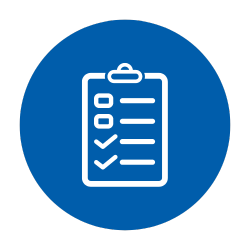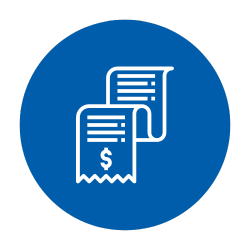Health Savings Account (HSA)
A Health Savings Account, or HSA, is a tax-advantaged savings account you can use to pay for qualified medical, dental and vision expenses and save for current and future healthcare costs. HealthEquity provides HSA benefits to RaceTrac team members. The money in your HSA always belongs to you. Even if you leave the company or you don’t use a lot of health services now, your funds will carry over from year to year and will always be there if you need them in the future – even after retirement.
Contributions
The maximum contribution for 2025 is $4,300 for self-only coverage or up to $8,550 for family coverage. Participants who are 55 years of age or older can contribute an additional $1,000 annually.
Eligibility
If you enroll in one of the Qualified High Deductible Health Plans, you may contribute to an HSA.
Essential Tips for Maximizing Your Health Savings Account

Maximize Contributions
Contribute the maximum allowed amount to your HSA each year to take full advantage of its tax benefits. For 2025, the limit is $4,300 for individuals and $8,550 for families.

Invest wisely
Once your HSA balance reaches a certain threshold, consider investing a portion of it in mutual funds or other investment options offered by your HSA provider. This can help your funds grow over time.

track Expenses
Keep thorough records of all medical expenses paid from your HSA, including receipts and explanations of benefits (EOB) statements. This ensures you can easily reimburse yourself for qualified expenses and avoid penalties.

Shop Around
Compare prices for medical services and prescriptions to get the best value for your HSA dollars.

Stay Healthy
Invest in preventive care to avoid costly medical bills down the road. Many preventive services are covered by HDHPs without requiring you to meet your deductible.

Plan for the future
Treat your HSA as a long-term savings vehicle for healthcare expenses. Consider how you can strategically use it in retirement, as funds can be withdrawn penalty-free for non-medical expenses after age 65 (though income tax will apply).
Flexible Spending Account (FSA)
A Flexible Spending Account, or FSA, allows you to set aside pre-tax dollars to pay for eligible medical expenses and dependent care expenses. For a complete list of eligible expenses, refer to IRS Publication 502: Medical and Dental Expenses. CBIZ Flex provides FSA benefits to RaceTrac team members.
Contributions
The IRS maximum contribution for 2025 is $3,300.
Eligibility
If you decline RaceTrac medical coverage or enroll in the Preferred Provider Organization (PPO) plan, you are eligible for an FSA.
Essential Tips for Maximizing Your Flexible Spending Account

Understanding Eligible Expenses
Know what expenses qualify for FSA reimbursement, such as co-pays, prescription medications, medical devices, and some over-the-counter items. Check the IRS’ list for specifics.

Plan Your Contributions Wisely
Estimate your annual healthcare expenses to determine your contributions. Avoid over-contributing to prevent forfeiting unused funds due to the “use-it-or-lose-it” policy.

Keep Track of Deadlines
Be aware of your plan’s deadlines for incurring expenses and submitting claims.

Save All Receipts
Retain receipts and documentation for all FSA-eligible purchases to substantiate claims and avoid reimbursement issues.

Monitor Account Balance Regularly
Keep an eye on your FSA balance throughout the year to ensure efficient use of funds and avoid last-minute spending.

Educate Yourself on Special Circumstances
Be aware of events like employment or family status changes that might affect your FSA. Understand how these can impact your contribution limits and eligibility for certain expenses.


